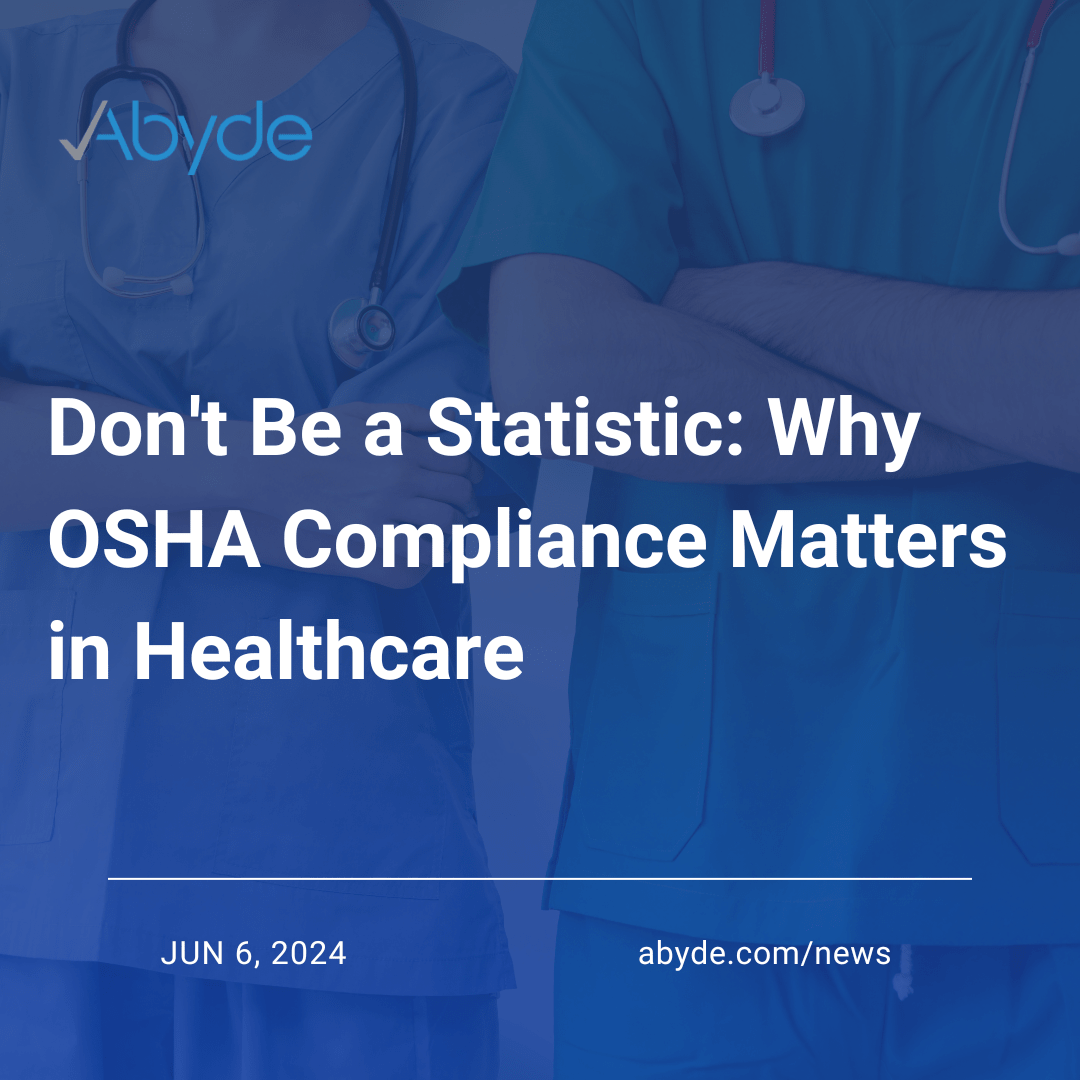
Did you know that the healthcare industry has some of the highest rates of illness and injury despite being a place for healing?
OSHA, or the Occupational Safety and Health Administration, is the governing body that protects workers’ rights throughout all industries. Given the healthcare industry’s risks and hazards, such as exposure to bloodborne pathogens, sharps, chemicals, and more, healthcare workers’ rights under OSHA are particularly crucial. OSHA enforces the protection of healthcare workers’ rights through legislature, audits, and fines that every practice needs to know about.
Why is OSHA Important in Healthcare?
OSHA is vital in reducing risks and illnesses in the healthcare industry. Since its introduction, OSHA has led to a significant drop in workplace fatalities and diseases, with the average number of cases decreasing from 10.9 per 100 in 1972 to 2.7 in 2022 – a 75% decrease.
Reducing workplace incidents empowers and protects healthcare workers. This confidence and protection translate to a culture of compliance, where better working conditions elevate patient care and, ultimately, create a healthier environment for everyone.
What does it mean to be OSHA Compliant?
Ensuring worker safety in healthcare requires ongoing attention. OSHA compliance must be proactive, involving the implementation of appropriate safeguards and regular, role-specific training. Practices need to provide training that covers workers’ roles and responsibilities so that they have the tools and knowledge necessary to stay safe at work.
A Facility Risk Assessment (FRA), or analysis of a practice’s vulnerabilities, is required as part of a proactive OSHA compliance program. An FRA enables practices to address issues proactively before they escalate into unsafe workplace situations.
OSHA compliance also involves providing workplace safety equipment, such as Personal Protective Equipment (PPE) like gloves, masks, and other healthcare gear.
To maintain a safe workplace, it is important to have easily accessible and transparent policies and procedures for all employees. This provides clear guidance to the staff on how to handle specific situations. For instance, Safety Data Sheets provide details on proper precautions and the properties of substances when handling chemicals, which are essential for ensuring a safe workplace.
Reporting these incidents and ensuring they are appropriately followed up is crucial when issues occur at work. Employees should also feel comfortable and safe discussing potential violations without fearing repercussions.
How Cloud-based Software Solutions Can Help
Managing OSHA can be complex for a practice, but utilizing a software solution can streamline the process. These intelligent solutions can dynamically manage OSHA requirements, like policies and procedures, ensuring clear documentation is easily accessible and always up to date, which minimizes risk to the business.
Beyond streamlining workflows, compliance software is a centralized resource. From the FRA to user-friendly training modules, a comprehensive software suite empowers employees to stay safe and informed on the job.
To learn more about how Abyde can assist your practice in developing a culture of OSHA compliance, schedule an educational consultation.